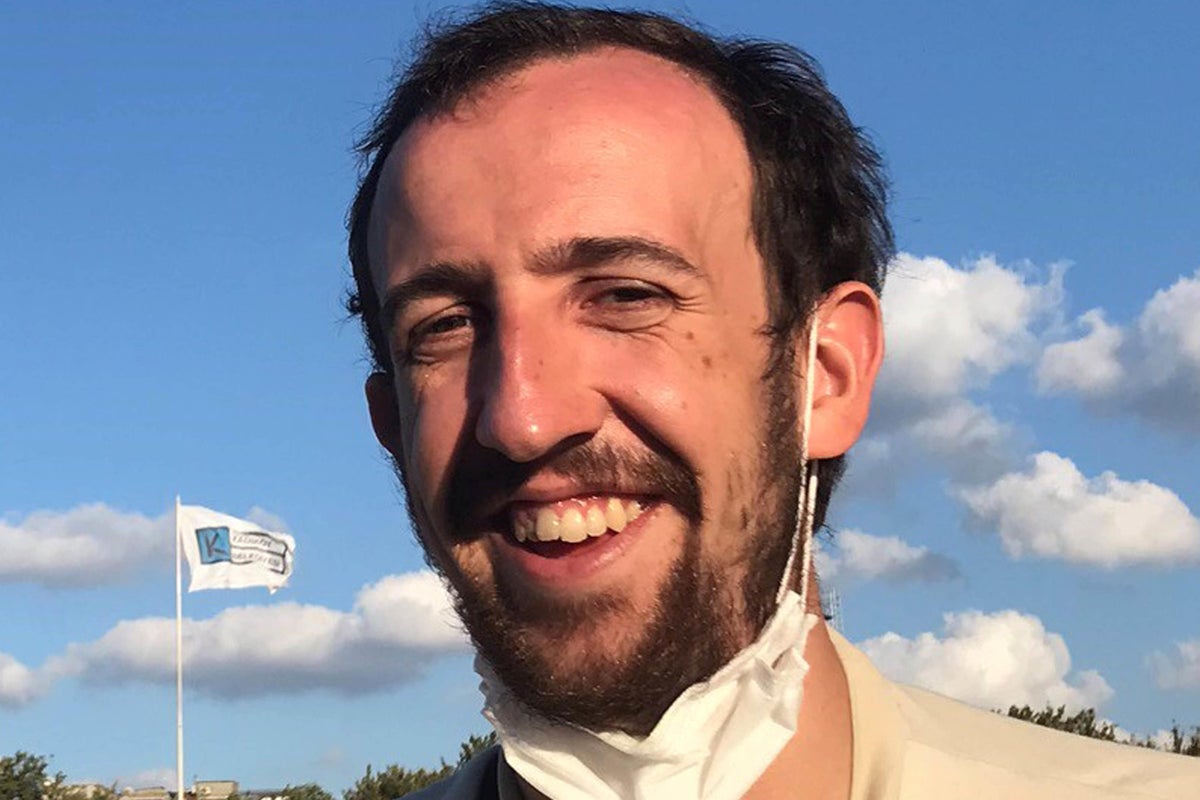
The parents of a law student who died after four remote GP consultations say they have been vindicated after a coroner ruled it was likely he would have lived if he had been given a face-to-face appointment.
Andrew and Anne Nash have fought for more than two years to find out whether 26-year-old musician David Nash would have lived if he had been seen in person by clinical staff at Burley Park Medical Centre, Leeds.
On Friday, Mr and Ms Nash, from Nantwich, Cheshire, said they were “both saddened and vindicated by the findings that the simple and obvious, necessary step of seeing him in person would have saved his life” and wanted to make sure “others don’t die as David did”.
The couple were speaking outside Wakefield Coroner’s Court after assistant coroner Abigail Combes ruled it was a “missed opportunity” when an advanced nurse practitioner failed to arrange a face-to-face appointment for the student when he complained of fever, neck stiffness and night-time headaches during a phone consultation on 2 November 2020.
Ms Combes said this meant the neurosurgery he underwent on what turned out to be a brain abscess was 10 hours later than it could have been.
The coroner said in her narrative conclusion: “On 2 November 2020 there was a missed opportunity to direct David to seek face-to-face care during his GP appointment that morning.
“Had he been directed to seek face-to-face or urgent care by the GP practice, it is more likely than not that he would have undergone neurosurgery approximately 10 hours earlier than he actually did which, at that time, it is more likely than not would have been successful.”
A week-long inquest heard how Nash first contacted the practice on 14 October 2020 and told a GP over the phone about his concerns about lumps on his neck.
He rang again on 23 October and told an advanced nurse practitioner about his painful right ear.
On 28 October, he told a GP he had blood in his urine and he was diagnosed with a urinary tract infection.
His fourth consultation was with another advanced nurse practitioner who diagnosed a flu-like viral infection on 2 November.
The coroner heard his condition deteriorated on 2 November and he and his partner made five calls to NHS 111, which his parents have described as “shambolic”.
After the final NHS 111 call, Mr Nash was taken to St James’s Hospital in Leeds by ambulance and later transferred to Leeds General Infirmary for neurosurgery.
He died on 4 November.
He had developed mastoiditis in his ear which caused an abscess on his brain, leading to his death, the inquest heard.
The inquest was told Nash fell while in a confused state but unsupervised in St James’s Hospital, but this did not contribute to his death.
Reading a statement outside court, his mother said: “As a family we have been devastated by David’s death. He was our wonderful son, brother and friend.”
She said the family have spent two years trying to “make sure others don’t die as David did”.
Ms Nash said: “We are both saddened and vindicated by the findings that the simple and obvious, necessary step of seeing him in person would have saved his life.”
The coroner said a statement from Dr Neil Lawton, a partner at Burley Park Medical Centre, detailed the changes that have taken place at the surgery since the student’s death and apologised to the family.
Dr Lawton said that at the point in the pandemic when Mr Nash died, the surgery was seeing 10-20 per cent of patients face-to-face, but this figure has now returned to 80 per cent plus, which is higher than the national average.
He said that if Nash called now with the same symptoms as he did on 2 November 2020, he would not even have been considered for remote consultation.
Ms Nash said: “We are relieved that the organisations involved in David’s care have made changes to their policies and procedures following this inquest process.
“By shining a light on his case, as we have done, we will have helped to prevent future deaths from occurring and we have done David justice.”
Nash was just starting the second year of a law degree at Leeds University when he died. He went to university after a number of years as a drummer in the Leeds music scene, touring Europe with his band Weirds, and recording an album.







